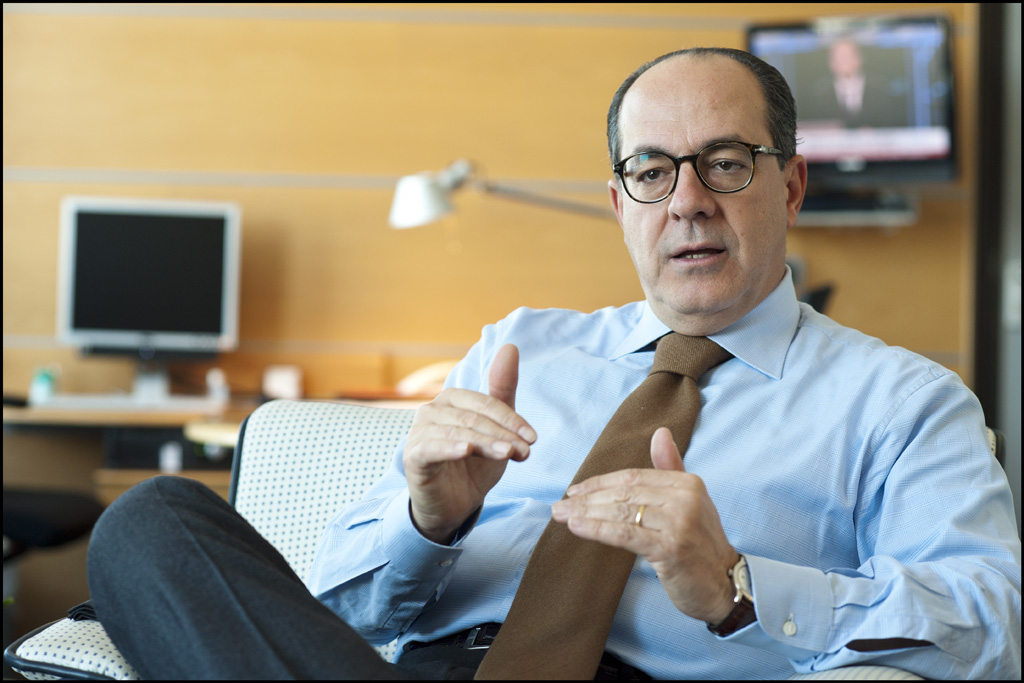Paolo De Castro, Chair of the European Parliament’s Committee on Agriculture and Rural Development (COMAGRI), is also the rapporteur for the COMAGRI opinion on the Commission’s proposal for a new MFF regulation. His draft report circulated last month is a trenchant call for additional money for farmers and greater flexibility in how it can be spent.
While the rapporteur’s draft has yet to be discussed by COMAGRI, it is likely to be approved as it builds on previous Parliament reports and resolutions. The COMAGRI opinion is a set of suggestions to the Budget Committee which has the ultimate responsibility for drafting the Parliament’s view on whether to consent to the Council’s (and, ultimately, the European Council’s) decision on the MFF ceilings in the 2014-2020 period. It provides an interesting insight into COMAGRI’s thinking on the role of the budget in a time of economic crisis.
The De Castro recommendations
The starting point for De Castro’s draft report is the Commission’s level of CAP spending in its MFF proposal. This assumes a freeze in nominal terms and thus a small decline in real terms as compared to the current MFF. Building on previous resolutions of the Parliament (the SURE report and the Dess report), the draft report calls for the Commission’s proposed level of CAP commitments to be increased to keep it constant in real terms.
Specifically, it calls on the Council to increase Heading 2 to €420,682 million and the subheading for direct payments and market related expenditure to €336,685 million respectively (compared to the Commission proposals for €382,927 million for Heading 2 and a sub-ceiling of €281,825 million for direct payments and market related expenditure).
Further, the draft report calls for flexibility to allow member states to move funds between the two pillars of the CAP “so that Member States can address the challenges for their rural areas in the most appropriate way”.
Methodological issues in defining constant CAP expenditure
There are various technical quibbles which might be raised regarding how De Castro has done his sums to justify seeking an additional €37.8 billion in CAP commitments. The draft report explicitly rejects the Commission’s argument that in comparing commitments between the two MFF periods, the shift of various items from Heading 2 to other MFF Headings should be taken into account. It also ignores the flexibility instruments for unforeseeable expenditure outside the MFF (agricultural crisis, European Globalisation Fund), as these are budgetary reserves which do not contain commitment appropriations.
Proposed 2014-2020 commitments are compared to combined 2007-13 commitments adjusted for inflation using the standard 2% inflation factor (the revised 2007-13 ceilings which take into account their various revisions (food facility, Galileo, ITER) is used as the baseline). An alternative approach (used in the Parliament’s Note on the CAP in the MFF 2014-2020) is to compare 2020 commitments with 2013 commitments in 2011 prices. The latter approach (again ignoring the non-Heading 2 items) would actually project a larger real decrease (-12.5%) than the figure calculated by De Castro (-9%).
While these technical details are of some interest (at least, to those of us who follow the CAP!), the key point is the political demand to maintain CAP commitments in real terms. This is justified simply on grounds of precedent (this was what the Parliament called for in the SURE and Dess reports) rather than on any attempted analysis that these additional funds would have a positive economic pay-back or achieve important gains for taxpayers. Given the fiscal pressures in all member states as the economic crisis worsens in Europe, this is not a convincing position.
Flexibility to transfer funds between pillars
The draft report also calls for member states to have flexibility in transferring funds between Pillars 1 and 2 of the CAP. The Commission’s legislative proposal would allow some voluntary modulation of Pillar 1 funds to Pillar 2 and the Capoulas Santos draft COMAGRI report would extend these possibilities. The Commission proposal also provides for reverse modulation in the case of nine countries with low average Pillar 1 payments per hectare which would be allowed to shift up to 5% of their Pillar 2 money to Pillar 1.
It is probably not the case that the De Castro draft report seeks even greater flexibility than already suggested. At issue here is that the flexibility rules are part of the MFF negotiating box and thus will be decided by the General Affairs Council (and ultimately the European Council) under the consent procedure. The draft report is probably meant as a warning shot that the Council should not seek to change flexibility rules agreed as part of the agricultural negotiations on the CAP.
The draft report should be seen as part of the intricate manoeuvrings in the debate around the next MFF discussed in a previous post. COMAGRI would like to prevent further cuts to the Heading 2 ceilings, particularly if the more austerity-minded member states gain the upper hand in the MFF debate. The COMAGRI call for a budget which maintains CAP commitments in real terms is an attempt to shift the terms of this debate in its favour.
This post was written by Alan Matthews.
Photo credit: European Parliament


